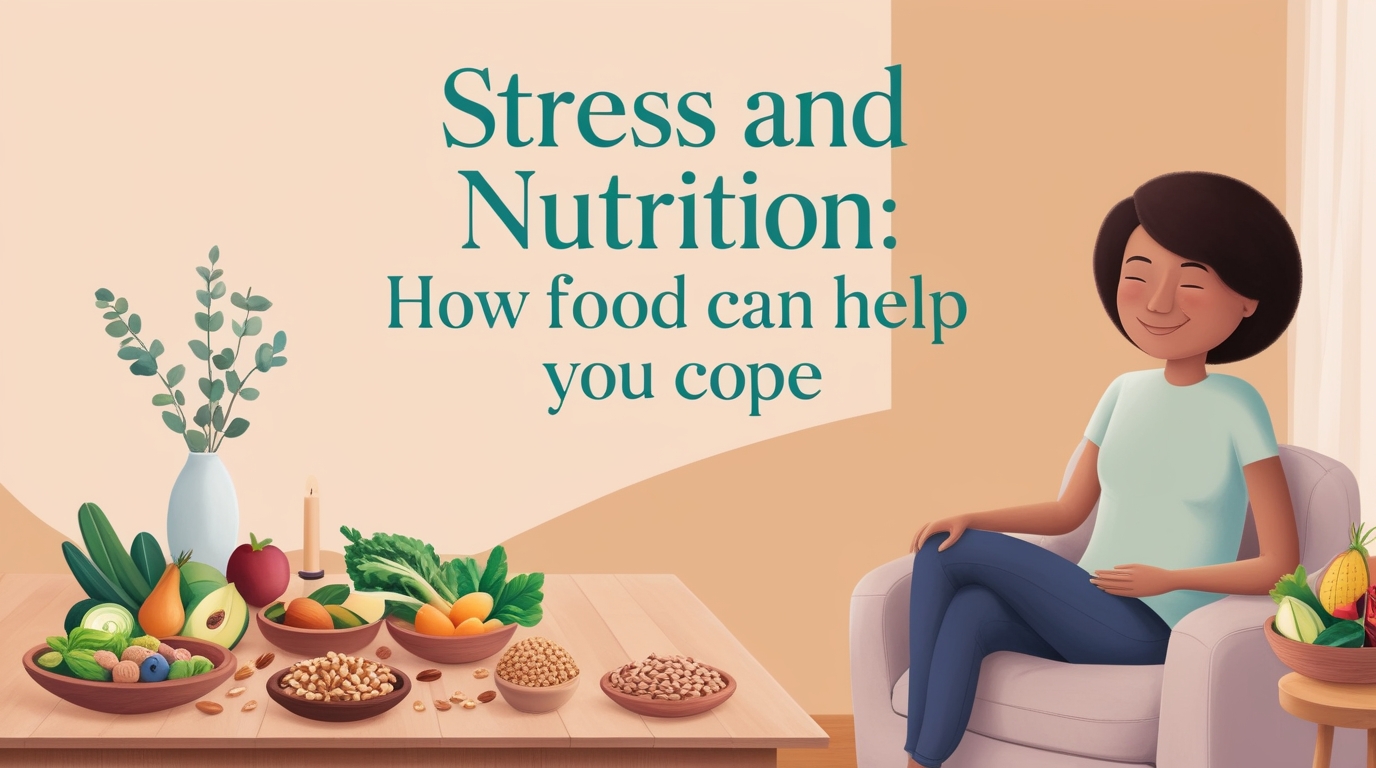Stress is something many of us deal with frequently. Whether it’s work, school, or personal challenges, stress can affect our mood and overall health. While there are many ways to cope with stress, such as exercise, meditation, and talking to friends, one effective method that often gets overlooked is nutrition. The food we eat can have a great impact on how we feel. In this blog, we’ll explore how nutrition can help you manage stress and what foods can boost your mood and reduce anxiety.
Learn more about nutrition rich diets which keep you cope with stress click here.
Understanding Stress
Stress is the body’s way of responding to challenges or demands. When you feel stressed, your body releases hormones. These hormones prepare you to handle tough situations, but if stress becomes a constant part of your life, it can lead to problems like anxiety, depression, and even physical health issues.
Poor eating habits can make stress worse. Many people reach for comfort foods that are high in sugar and fat when they’re feeling devastated. While these foods may provide temporary relief, they often leave you feeling slow and more stressed. This is why it’s important to focus on healthy nutrition to help manage stress.
How Nutrition Affects Stress Levels
- Blood Sugar Control: Eating foods that cause quick rises in blood sugar can lead to energy crashes and increased feelings of anxiety. A balanced diet helps keep your blood sugar steady, which can improve your mood.
- Nutrient Supply: Your brain needs specific nutrients to function properly. Vitamins and minerals, such as B vitamins, omega-3 fatty acids, and magnesium, support brain health and can help regulate your mood.
- Gut Health Connection: There’s a strong link between gut health and mental health. A healthy gut can positively influence your mood and stress levels. Eating foods that promote gut health can help you feel better overall.
Foods to Help Manage Stress
Here are some foods you can include in your diet to help reduce stress:
Leafy Greens
Vegetables like spinach, kale, and Swiss chard are packed with vitamins and minerals that can support brain health. They are rich in magnesium, which can help lower anxiety levels.
- Tip: Add leafy greens to smoothies, salads, or stir-fries for a nutritious boost.
Berries
Berries like blueberries, strawberries, and raspberries are high in antioxidants and vitamin C. These nutrients can help reduce oxidative stress in the body and improve your mood.
- Tip: Enjoy a bowl of mixed berries as a snack or add them to your breakfast cereal or yogurt.
Nuts and Seeds
Nuts like almonds, walnuts, and seeds like pumpkin seeds are great sources of healthy fats, magnesium, and vitamin E. These nutrients can help reduce anxiety and support overall brain health.
- Tip: Keep a handful of nuts or seeds on hand for a quick, healthy snack.
Fatty Fish
Fatty fish like salmon and sardines are highly rich in omega-3 fatty acids. Omega-3s have been shown to lower anxiety and improve mood.
- Tip: Target to include fatty fish in your meals at least twice a week.
Whole Grains
Whole grains like brown rice, quinoa, and oats can help stabilize blood sugar levels and are a good source of B vitamins, which are essential for brain function.
- Tip: Swap out white rice or bread for whole grain options to increase your nutrient intake.
Dark Chocolate
Dark chocolate (at least 70% cocoa) contains antioxidants and can help reduce stress hormones in the body. It also releases endorphins, the happy hormones.
- Tip: Treat yourself to a small piece of dark chocolate when you need a mood boost.
Herbal Teas
Herbal teas like chamomile, lavender, and green tea have calming effects that can help reduce stress and promote relaxation.
- Tip: Sip on a warm cup of herbal tea in the evening to unwind after a long day.
Additional Tips for Stress Management Through Nutrition
- Stay Hydrated: Drinking enough water is important for overall health. Dehydration can lead to fatigue and irritability, which can worsen stress.
- Practice Mindful Eating: Focus on your meals and avoid distractions while eating. It helps you enjoy your food and recognize when you’re full.
- Limit Caffeine and Sugar: While a little caffeine can give you a boost, too much can increase anxiety. Likewise, sugar can cause energy crashes that lead to mood swings.
- Plan Balanced Meals: Aim for a variety of nutrients in each meal, including protein, healthy fats, and complex carbohydrates. It helps keep your energy levels steady.
- Listen to Your Body: Pay attention to how you feel when you eat different types of foods. Everyone’s body reacts differently, so look for what works best for you.
When to Seek Professional Help
While nutrition can play a significant role in managing stress, it’s important to remember that it’s not a replacement for professional help. If you’re feeling devastated, anxious, or depressed, consider talking to a mental health professional. They can provide guidance and support to your needs.
Conclusion
Nutrition is a powerful tool in managing stress. By incorporating nutrient-rich foods into your diet, you can help stabilize your mood, regulate blood sugar levels, and support overall well-being. Remember, what you eat can remarkably influence how you feel.
Take small steps to improve your diet, focus on whole foods, and make mindful choices. By doing so, you’ll not only feel better physically but also equip yourself to cope with life’s challenges more effectively. So, the next time stress strikes, reach for healthy foods that nourish your body and mind—your future self will thank you!





